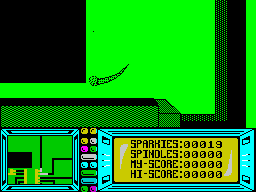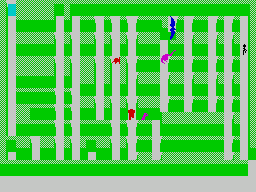I was 12 years old and unworried by historic political meetings or war in the middle east.
All I wanted to do was play computer games.
And I wanted to play them on a Sinclair ZX Spectrum.

I’d first been introduced to the Speccy three years earlier.
Growing up, everyone seemed to have that one friend whose parents bought them everything.
Another friend received a 48K Spectrum for his birthday the following year.

He brought it around one afternoon, plugging it into our black and white kitchen TV.
Then the day disappeared, swallowed up by the delight that was Melbourne House’s Scramble clone, Penetrator.
We created our own maps using its in-built level designer when wed finished playing.

However, I wasn’t a stranger to playing videogames at home.
But the games for both of these consoles were elusive and expensive.
I’d already seen Mastertronic games for sale in my local newsagent for just 1.99 each.

I’d seen the racks of cassette boxes in WH Smith and Boots (yes, Boots!).
Specialist magazines Crash, Your Sinclair and Sinclair User were on sale every month.
This was an actual computer, a machine that could be programmed and even used for educational purposes.

This was a bundle of technological wonder.
It was a joyous gift.
Of course, it didn’t work.
I’d be poring over them again soon.
The replacement didn’t work either, though.
I had to endure another agonising wait.
Then the third one functioned!
1986 was our honeymoon period.
It’s no understatement to state that Christmas 1986 was one of the happiest times of my life.
The shelf above my desk became laden with the colourful boxes of these games and more.
1987 brought more games and envious glances at the incoming 16-bit computers.
And as everybody knows, games are what makes a system.
I had been tempted away from the old girl by a bright, shiny and wonderful Sega Mega Drive.
The Speccy was there on the cover, as was the Mastertronic logo.
Back in the 80s, we all had Mastertronic games.
Homebrew coders constantly stretch the bounds of what can be achieved within 48 and 128K.
There’s no doubt that most Spectrum fans will never improve on those lovingly-recalled days of 1986.
Happy birthday, dear Spectrum.
I won’t forget you again.